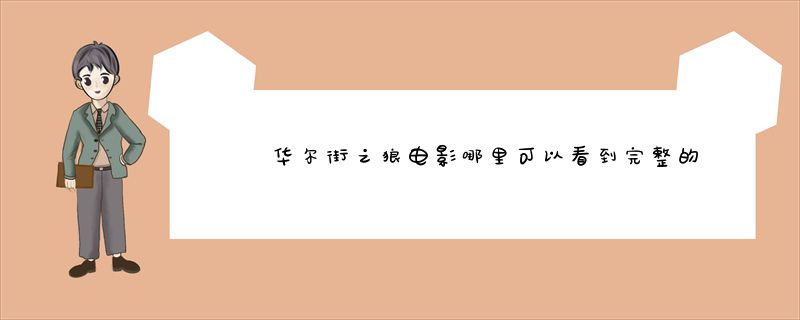风光秀丽的镜泊湖婉如一颗璀夺目的明珠镶嵌在祖国北缰上,它以独特的朴素无华的自然美闻名于世,吸引越来越多的国内外游人。
镜泊湖,历史上称阿卜湖,又称阿卜隆湖,后改称呼尔金海,唐玄宗开元元年(公元713年)称忽汗海,明志始呼镜泊湖,清朝称为毕尔腾湖。今仍通称镜泊湖,意为清平如镜。镜泊湖位于黑龙江省东南部张广才岭与老爷岭之间,即宁安市西南50公里处,距牡丹江市区110公里,它是大约一万年前,
约在第四纪的中晚期火山爆发,玄武岩浆堵塞牡丹江道而形成的火山熔岩堰塞湖泊。湖深平均为40米,由南向北逐渐加深,最深处达62米,湖身纵长50公里,最宽处9公里,最窄处枯水期也有300米,全湖分为北湖、中湖、南湖、和上湖四个湖区,
总面积90。3平方公里。由西南至东北走向,蜿蜒曲折,呈S型,湖岸多港湾,湖中大小岛屿星罗棋布,而最著名的湖中八大景却犹如八颗光彩照人的明珠镶嵌在这条飘在万绿丛中的缎带上。这最著名的八大景是-吊水楼瀑布,大孤山、小孤山、白石砬子、城墙砬子、珍珠门、道士山和老鸪砬子。镜泊湖原始天然,风韵奇秀。山重水复,曲径通幽。动人的传说,更为这北方的名湖,增添了神奇的色彩
描写牡丹江镜泊湖的词语
The southern shore of Lake Jingbo, an unprecedented scenic beautyspot in Manchuria, is home to a small village called Nanhutou, which means village on the southern tip of the lake.
The village Beihutou is located on its northern shore. Several miles up, River Xiaojiaqi flows into Lake Jingbo: here you used to come across two old log-cabins in a deep valley at the foot of a mountain. We held a meeting in February 1936 in one of them. I was told that it is difficult now to determine the site of the cabin owing to the surrounding thick grass and trees but 50 or 60 years ago a tall ash tree and pine-nut tree stood in front of that cabin, serving as a reference point for all those who were coming to the meeting place. The developments in the latter half of the I 930s can be traced back to this cabin known by our historians as the "log-cabin on River Xiaojiaqi".
In mid-February 1936, on the eve of Usu (the day of the first rains in the year) after Ripchun (the day when spring begins) we made our way to this place, after the second expedition to north Manchuria. It marked the beginning of spring according to the calendar, but the biting cold of north Manchuria was still rife and the wild continental wind whipped against us.
Now and then the sound of breaking ice rang out on Lake Jingbo, accompanied by the reverberations of oaks and birches cracking from the cold in the thick forests along River Xiaojiaqi. It was so cold there that even our experienced cooks could not boil rice in the open-air kitchen. Whereas the rice at the bottom of the pot burnt to a cinder, the rice in the upper layer would not boil, affected by the biting cold of 400C below zero.
North Manchuria still impinges on me as the one place in my life, where I ate half-cooked food more often than anywhere else.
Almost four years had passed, since we had launched the war against the Japanese imperialists. Our revolutionary force had grown on a large scale in its military and political aspects, and the future looked bright. The anti-Japanese revolution had experienced a thorny path, and was now clearly advancing dynamically towards a fresh turning-point.
As I hastened towards Nanhutou to meet Wei Zheng-min, without a rest from the expedition, various thoughts of our revolutionary prospects surged inside me.
I had waited eagerly throughout the expedition in north Manchuria and also during our days in Xiaojiaqihe after the expedition for the envoys who had been sent to Moscow half a year earlier. The major issue Wei Zheng-min was to bring to the attention of the Comintern by the decision of the Yaoyinggou meeting was apparently about the "Minsaengdan" case in which thousands of Korean communists in east Manchuria had been removed, but, in essence, it was about the independent nature of the Korean revolution. In other words, it was about whether the Korean communists' struggle under the slogan of the Korean revolution was right or wrong, legitimate or illegitimate, or whether it contradicted the Comintern principle of one party for one country. From today's stand-point, it is natural and does not leave even a shadow of a doubt about its validity, but at that time, when the Corn-intern existed and the principle of one party for one country was regarded as inviolable, it was a complicated and serious issue, what defied a ready answer, but was vital to our destiny.
The tenacious argument of people, who wielded the principle of one party for one country, the contention that the Korean communists' struggle for the Korean revolution constituted a heretic act unworthy of a communist, and a factional practice alien to the Party, was terrible. They said, "A communist is an internationalist. How can he be preoccupied with the thought of his country, which lacks a Party of its own and be captivated by a narrow nationalist idea, instead of devoting himself to the revolution of the country whose Party he belongs to?
This is the same attitude, expressed by the revisionists who adhered to the 'defense of the fatherland' slogan in the days of the Second International. Lenin labeled them traitors and enemies of the cause of socialism and communism and condemned them. If you Korean communists continue to insist on the Korean revolution, you could also be labeled traitors and enemies of the cause of socialism. Consequently, you would be wise not to act rashly."
Naturally enough, I was not that worried about this matter, and in a sense can say that I already had a rough estimate of the answer Wei Zheng-min would bring, because our opinion was just and Wei had understood it fully. I had no doubt that Comintern officials would approve the appeal we had submitted on the fundamental issues of the Korean revolution.
My conviction that the Comintern would treat our problems fairly was both based on the consistent belief that our appeal to Moscow through Wei conformed in all aspects with the revolution's principles and interests and related to the situation at that time, when the Comintern was seeking a new line.
Until 1919, when the Communist International was organized by Lenin, the Russian Communist Party was the only political party of the working class in power. The revolutionary left-wing broke with the revisionist Social Democratic Parties of the Second International and formed Communist Parties. However, they were very young in both ideological and organizational aspects and still not strong enough to independently carry out revolution in their own countries.
The victory of the socialist revolution in Russia sparked vigorous struggles to break the chains of capitalism and establish Soviet republics on a world-wide scale, but these efforts were frustrated. Despite the favorable objective situation, created by the emergence of the first socialist state in history, the revolutionary forces of each country were not sufficiently prepared to overcome the enemy and gain a conclusive victory.
In these circumstances, the communists all over the world were compelled to reorganize the international communist movement and unite organizationally with newly-emergent Russia and the Russian Communist Party as the axis. They had to establish the principle of democratic centralism in the form of the Comintern organization and mode of its activities to make sure that the parties and revolutionary movements in separate countries obeyed unconditionally the directives of the international center.
By accepting this requirement in a dogmatic way, some communists revealed a flunkey tendency to blindly follow directives from Moscow, disregarding the revolutionary aims in their own countries and their own national intereststhis tendency caused a considerable loss to the revolutionary movement in individual countries.
However, the revolutionary movement developed and revolutionary forces grew in separate countries under the unified guidance of the Corn-intern. Communists in these countries began to emerge as forces, capable of independently carrying out their revolutions.
From the early 1920s onwards, Communist Parties sprouted in the colonies and semi-colonial countries in Asia and, under their leadership, the national liberation struggles advanced rapidly. The parties of many countries could now have their say and demanded the right to independently define their own lines. It was in actual fact difficult for the Comintern, situated as it was in Moscow at the helm of the world revolution, to formulate policies in good time which would suit the actual situation in many countries of the world's continents or regulate and guide their revolutionary struggles in such a way, as to meet the ever-changing circumstances and conditions. The Comintern, composed of people from various countries, was restricted somewhat in the formulation of lines and policies and in their dissemination.
The international communist movement was beginning to understand the need for a gradual change in its organization of revolutionary force and guidance of the struggle's development. Revolution cannot be imported or exported. This fact, coupled with the pressing need to unite the revolutionary efforts of each country into one single force, aroused the communists in every country to the need to establish Juche, formulating and implementing their own line and maintain their party's independence. This change in the situation constituted an important guarantee, that the Comintern would confirm the independent nature of the Korean revolution.
When he set off for the Soviet Union via Hunchun in summer 1935, Wei Zheng-min promised to return via Harbin or Muling and meet me in Ningan. Consequently we planned to go to Ningan after the Emu campaign. At around the time when we hurried to Nanhutou, the fascist threat was looming ever larger on the international scene. The Spanish Civil War was developing into a violent war and was assuming an international character, owing to the fascists' overt armed intervention.
Japan was to be the hotbed of a new war in the East. She was being precipitated towards militarism. With the formation of the Saito Cabinet in the wake of the "May 15 incident" in 1932, Japan's party politics came to an end and the country was placed under the rule of a military cabinet. Japan thereby vehemently told the world, without the slightest hesitation, that “war is the father of creation and the mother of culture The fascist trend in Japan culminated in the coup of February 26, 1936, at the time when we planned to convene the meeting at Nanhutou.
The incident finally led to the oppressive phase, where the doctrine of overseas aggression, advocated by the junior officers' group, began to be implemented. The young officers, 1,000 non-commissioned officers and men who took part in the coup, assaulted the residences of the Prime Minister and several of the ministers, killing or seriously wounding important government officials, including the Lord Keeper of the Privy Seal, the Minister of Finance, the Inspector-General of Military Education and the Grand Chamberlainthey occupied the Metropolitan Police Agency, the Ministry of War, the General Staff Office and the residence of the Minister of War, thereby gaining control of the "heart of Japanese politics". The coup, staged under the slogan of "respecting the Emperor and eliminating treacherous subjects", was put down in four days. The political confusion was smoothed over by the execution of the master-minds behind the plot. This, however, constituted a danger signal of the rampage of Japanese militarism.
The incident on February 26, a product of conflicts among Japanese military circles, between the Imperial Way and Control factions, proved the grave stage of Japan's impending fascism and marked the advent of a military dictatorship. The maneuvers of the militarist force inside Japan itself implied the danger that they would launch a new war and larger-scale military actions.
Keeping a vigilant eye on the developments in Japan, we re-examined our fighting strategy in a bid to anticipate their consequences. Although the coup failed, it clearly demonstrated the outrageous nature of Japanese militarism in its participation in Japan's domestic politics and its aggressive intentions towards other countries. In actual fact Japan provoked the Sino-Japanese War less than a year and a half later and precipitated a still greater aggression.
The emergence of fascism in Japan weighed more heavily upon Korea, her colony. A frenzied campaign was launched on the Korean peninsula to wipe out all that was Korean and crush all forms of anti-Japanese struggle and anti-Japanese elements. To use Korean language instead of Japanese, wear white clothes instead of dyed colors and failure to hoist the Hinomaru (the national flag of Japan), visit the shrines, learn the "Pledge of the Imperial Subjects", or put on geta (Japanese wooden sandals) - these acts were all termed anti-Japanese, anti-state and treacherous behavior accompanied by a fine or penalty, arrest or even imprisonment.
Some former proponents of patriotism now abandoned the last vestiges of their conscience in this violent campaign of national extinction, became turncoats and declaimed that "Japan and Korea were one" and that "the Japanese and Koreans came from the same stock", in order to save their skins. Patriots were murdered while traitors cut a wide swathe. The whole of Korea was being stifled.
This suppressive situation made it imperative for us to move to Mt. Paektu and demonstrate that Korea was alive, Korea was fighting and that Korea would survive. These shocking changes occurred successively at home and abroad around the time when we met at Nanhutou.
These developments were indeed oppressive, but they did not depress us. I was convinced that we could defeat the Japanese imperialists, if we moved the armed struggle deep into the homeland.
The march was arduous and exhausting, but the men's spirits were high, as they anticipated the advance to the Mt. Paektu area. It was probably during our march to Nanhutou that we debated the significant lessons of the legend of Zhenzhumen village, situated off Lake Jingbo. It is a very interesting legend. A poor man and his daughter once lived in the village of Zhenzhu men on Lake Jingbo. The daughter, nearly twenty years of age, was a rare beauty. and all the young men around wanted to marry her.
Her father had been endowed with the divine gift of seeing through waters of any depth. He once told his daughter, “While angling the other day, I saw a golden mirror lying deep in the lake. To retrieve that mirror, I must first get rid of a three-headed monster living in the water. To do this, however, I need a very brave and bold assistant. I've been trying to work out these days how to find a suitable assistant."
His dutiful daughter answered, "I will marry the young man who helps you bring out that mirror."
He backed his daughter's idea. He disseminated the rumor about his daughter's decision in the neighboring villages. Many young men came to Zhenzhumen on hearing the rumor. However, when they heard the man s plan to get the mirror, none of them expressed a readiness to become his assistant. However, one young man whose surname was Yang, volunteered. The old man and his daughter accepted his offer at once and promised him that the girl would marry the lad if they managed to bring back the mirror.
One fine day the man went to the lakeside with the young man. After rowing out onto the lake, the man gave the lad three swords - large, medium and small - and said, "When I come to the surface for the first time, you must give me the small sword, the second time - the medium one, and the third time - the large one. When you hand me the swords, you must act as quick as lightning. Don't be frightened. If you take to flight in fright, before getting the mirror out, both you and I will die.”
The boy comforted him, saying, "Please don't worry, sir."
Soon the man jumped into the water. The lad sitting in the boat gazed into the water's depths, and the girl on the shore watched him. A few moments later the man's pale face broke surface. The boy swiftly handed him the small sword, as he had been told. The man dived into the water with the sword. The lake then began to surge in the depths. The man rose to the surface with one of the bleeding monster's heads, as large as a man's, and disappeared into the water with the second sword.
In a few minutes, the lake ran high and the waves rose and seemed about to capsize the boat. The man, who was stained with blood emerged, this time holding another of the monster's heads, the size of a horse's, and plunged again into the surging water with a third sword. Thunder boomed in the sky and the waves raged. The boat rolled heavily on the waves, as if it were sinking. At this horrible sight, the girl on the shore felt as if her heart had stopped beating. She was so tense and fretful that she held her breath.
The lad became deranged and rowed the boat with all his might towards the shore, forsaking his promise to the man and his attachment for the girl, who had been watching him. Enraged, the girl shouted at him, stamping her foot, and persuaded him to turn the boat backshe climbed in and rowed with the lad to the center of the lake in search of her father. The wind and raging waves subsided, but the man was nowhere to be seen. The boy and girl called out for him again and again, but the man died in the water and therefore there was no reply. The girl tearfully reproached the boy for breaking his promise. Quarrelling, having no idea of the time, they both disappeared in the fog.
Although the story varies a little from village to village, or from Emu to Ningan, this is the general outline. Apparently the name of Lake Jingho originated from the Zhenzhumen legend. On hearing the legend we thought deeply about loyalty and a self-sacrificing spirit. My comrades cursed the young man as disloyal and cowardly. The legend affected them tremendously. Whenever a coward appeared in our ranks, the guerrillas would condemn him as “the boy Yang on Lake Jingbo".
To discuss measures and decide how to cope with the urgent historic tasks raised by the country and the nation, whose destiny was at stake, I considered it necessary to convene a meeting of military and political cadres of the Korean People's Revolutionary Army at Xiaojiaqihe, before leaving for Mt. Paektu.
One evening in mid-February, when I was putting the finishing touches to the draft report for the meeting and waiting for the envoys, who had gone to Moscow, the door of the log-cabin was flung open and Wei Zheng-min appeared before me.
He apologized profusely for arriving later than schedule, explaining that he had been laid up in hospital for a few months. Although he arrived late, he was met with our congratulations for returning to Manchuria, after recovering from his illness. He looked much better now, probably because he had been to Moscow. I could guess just by looking at his composed air that his trip had been successful.
Wei's return journey had not been smooth. He arrived in Ningan via Harbin by rail and met the comrades of the 5th Corps of Zhou Baozhongon his way to Nanhutou he had been stopped near Wangou village by the patrol police. After a short interrogation, the policemen had suspected him and wanted to take him to their substation. Wei was carrying important documents from the Comintern in his bundleeverything would have been ruined if he had been taken to the station. He gave the policemen 50 yuan , and they let him go.
Wei said jokingly that he had thought his body would be worth tens of thousands of yuan but it turned out that it was only worth 50 yuan.
For some strange reason, he said: "Let me shake your hand once more, Comrade Kim Il Sung." "We've just shaken hands. What's it all about?" I asked, puzzled.
"I want to congratulate you on one matter. This is a significant handshake. So, be happy, Comrade Kim Il Sung. After a serious discussion on the matters you've raised, the Comintern concluded that your opinions are all correct and issued some important directives backing them. Everything was settled just as the Korean communists desired."
Feeling tears welling up in my eyes, despite myself, I grabbed Wei's two hands. "Is that true?"
"Yes. The Comintern criticized the east Manchuria Party committee for committing such grave Leftist mistakes in its struggle with the 'Minsaengdan' and other activities. All the senior officials of the Comintern and its Chinese Communist Party representatives expressed the same opinion on this matter.
“But most importantly, the Comintern has recognized the inalienable and inviolable right of the Korean communists to be solely responsible for the Korean revolution and has given its support to the revolution. The Comintern ga
请你当一回小导游,介绍一下镜泊湖的地下森林
1.形容镜泊湖的词
镜泊湖是中国最大、世界第二大高山堰塞湖,著名旅游、避暑和疗养胜地,国家级重点风景名胜区,国际生态旅游度假避暑胜地,世界地质公园.距离牡丹江市区仅百余公里.“镜泊”意为“清平如镜”.红罗女的传说为这里的山水倍添灵性,许多伟人的行踪墨宝也给名湖增色不少.镜泊湖蜿蜒曲折,湖中大小岛屿星罗棋布,而最著名的湖中八大景,犹如八颗光彩照人的明珠镶嵌在这条在万绿丛中的缎带上.镜泊湖原始天然,风韵奇秀,山重水复,曲径通幽,可谓春华含笑,夏水有情,秋叶似火,冬雪恬静,万种风情四季分明让人久久难忘,无限眷恋.镜泊湖分为北湖、中湖、南湖和上湖四个湖区,由西南向东北走向,蜿蜒曲折呈S状.吊水楼瀑布、珍珠门、大孤山、小孤山、白石砬子、城墙砬子、道士山和老鸹砬子是镜泊湖中著名的八大景观,八大景观犹如八颗光彩照人的珍珠镶嵌在万绿丛中.在八大景观中,以吊水楼瀑布最为著名,它酷似闻名世界的“尼亚加拉大瀑布”,一般幅宽40余米,落差为12米.雨季或汛期,瀑布呈现两股或数股迭落,总幅宽达200余米,有着“疑似银河落九天”的壮观气势.在瀑布旁边一座小巧的八角亭榭依岩而立,人称“观瀑亭”,一条经人工凿成的石头阶梯蜿蜒盘伸.每逢晴天丽日,光照瀑布,则有色彩斑斓的彩虹出现,凡到此游览者,无不惊叹其壮美的景色.冬季枯水期,瀑布不见了,却可以观看到另一番景致.在熔岩床上,游人可发现许多被常年流水冲击的熔岩块因磨蚀而形成的大小深浅不等的熔洞,这些熔洞,犹如人工凿琢般光滑圆润十分别致.环潭的黑古壁,是一个天然的回音壁,可与北京天坛公园的“回音壁”相媲美,游人的轻歌笑语经圆形石壁折射,清晰地传到自己的耳边. 镜泊湖不仅风光旖旎,而且物产丰富.镜泊湖是个天然的大水库,蕴藏量16亿立方米,已建成两座采用压力隧道引水发电站,被誉为“地下明珠”.湖区水域还盛产鲤鱼、红尾等40多种鱼类.湖区森林面积6000平方公里,山产品种类繁多,有山葡萄、松子、猴头蘑等.湖区还是个天然动物园,这里有野生动物及鸟类200余种,珍禽异兽举目可见.当你漫步在此处时,可爱的动物们可能就伴随左右. 镜泊湖一年四季都有着各自独特分明的景色.春天,满山达子香,满湖杏花水;夏天,绿荫遮湖畔,轻舟逐浪欢;秋天,五花山色美,果甜鱼更肥;冬天,万树银花开,晶莹透琼台.除此之外,还有各项娱乐措施,冬季景区开辟冰雕、雪雕、滑冰、滑雪、滑道、冰上球类、冰上捕鱼、马拉爬犁等游乐项目.体验东北民俗,品尝山珍野味,冰雪风光皎洁鲜亮,冰雪游乐丰富多彩. 这里,你可以得到与镜泊湖名字一样的平静感,从而能够休养生息,陶冶性情.湛蓝的天空倒映在如镜的水面上,使湖水也染上了一层浅蓝,岸上的青山中不时出现一幢幢精巧别致的欧式别墅,掩映在绿树丛中,桃红的、绛黄的、海蓝的……山清水秀的镜泊山庄,风光旖旎的百里长湖,气势雄浑的吊水楼瀑布,倚丽壮阔的火山口原始森林,怪石峥嵘的地下熔岩遂洞,盛衰疑迷的渤海古国遗址,粗犷浓烈的地方民族风情,繁复珍奇的野生动植物资源,还有黑龙潭跳水表演.这山、这水、这景、这情,令人惊叹神往,流连忘返.。
2.《镜泊湖奇观》中有哪些描写湖的词语和句子1. 相传很久以前,牡丹江畔住着一个美丽善良的红罗女.她有一面宝镜.哪里的人们有苦难,她只要用宝镜一照,便可以消灾弭祸.
2. 这件事传到了天庭,引起了王母娘娘的忌妒,她派天神盗走了宝镜.红罗女上天索取,发生了争执,宝镜从天上掉了下来,就变成了镜泊湖.
3. 这当然是神话.虽说镜泊湖不是神仙宝物,也不能为人消灾袪病,不过,镜泊湖夏季凉爽少风,湖面水骨如镜,倒是事实.
4. 镜泊湖位于黑龙江省宁安县境内.约在一万年前,这里火山喷发,炽热的岩流阻塞了牡丹江的河道,于是水面被抬高,形成了湖泊.
5. 镜泊湖景色的最大特点,是自然朴实而又绮丽多变.除了镜泊山庄有一些精致的别墅外,这里没有多少人啊的点缀,只有峭拔的山岩,清澈的湖水,缤纷的花树,一望无际的林海.然而它并不单调:四周峰峦叠起,湖心石岛耸峙,湖中倒影奇幻,真是美不胜收.
6. 吊水楼瀑布是镜泊湖的著名景点,位于湖水泻入牡丹江的地方.瀑布宽四十三米,高二十五米.
7. 底部岩石由于上万年激流的冲击,被蚀成了几十米的深潭.本来清澈的湖水静静地淌着,一到陡崖,突然下跌,顿时抛撒万斛珍珠,溅起千朵银花,水雾弥漫,势如千军万马,声闻数里,同幽静的镜泊湖形成鲜明的对照.这里埏北国,冬季气温低达零下三四十摄氏度,但瀑布却从不结冰断流.
8. 镜泊湖附近有一处地下森林.所谓地下森林,实际上是长在火山口里的森林.这里有七个火山口,其中最大的一个直径约五百米,深约一百米,壁陡底骨,景色壮丽.
9. 由于火山长期没有喷发,火山岩逐渐风化,同火山灰及沉积的浮尘积聚混合,形成了富含钾、磷等元素的肥沃土壤,加上这里降水较多,火山口的东南方向有缺口,阳光可以射入,所以长起了郁郁葱葱的森林.
10. 林中有红松、白桦、水曲柳、胡桃楸等树木,还有许多名贵的药材.东北虎、熊、青羊、马鹿等野生动物,也常到火山 *** 动.
11. 游客们爬上火山口的顶部俯视,只见足下峭壁如屏,黝黑的火山口似乎要吞没一切,令人心惊.可是底下的林木却不在乎这谷底的阴暗潮湿,它们欣欣向荣,充满了活力.
3.描写镜泊湖的句子镜泊湖处于群山环抱之中,山重水复、蜿蜒连绵,时而水平如镜,时而微波荡漾,秀美无比。
“褶曲湖山几复湾,云落清波若镜天”(陈雷:《镜泊湖上》)
“湖光山色绿黛敷,峰回流转湖连湖”(钱俊瑞:《调寄添字浣溪沙·镜泊湖》);
“人在镜中行,云影天光上下明”(鲁歌:《游镜泊湖调寄南乡子》)
“飞落千堆雪,雷鸣百里秋。深潭霞飞雾漫,更有露漫岸秀。任石阻崖隘,只是冲关奇口”(赖积忠:《调寄水调歌头·观瀑》);
“林海夜深闻虎啸,山雨飞瀑作雷鸣”(孙莜祥:《镜泊湖》)。
4.镜泊湖的导游词风光秀丽的镜泊湖婉如一颗璀夺目的明珠镶嵌在祖国北缰上,它以独特的朴素无华的自然美闻名于世,吸引越来越多的国内外游人。
镜泊湖,历史上称阿卜湖,又称阿卜隆湖,后改称呼尔金海,唐玄宗开元元年(公元713年)称忽汗海,明志始呼镜泊湖,清朝称为毕尔腾湖。今仍通称镜泊湖,意为清平如镜。镜泊湖位于黑龙江省东南部张广才岭与老爷岭之间,即宁安市西南50公里处,距牡丹江市区110公里,它是大约一万年前,
约在第四纪的中晚期火山爆发,玄武岩浆堵塞牡丹江道而形成的火山熔岩堰塞湖泊。湖深平均为40米,由南向北逐渐加深,最深处达62米,湖身纵长50公里,最宽处9公里,最窄处枯水期也有300米,全湖分为北湖、中湖、南湖、和上湖四个湖区,
总面积90。3平方公里。由西南至东北走向,蜿蜒曲折,呈S型,湖岸多港湾,湖中大小岛屿星罗棋布,而最著名的湖中八大景却犹如八颗光彩照人的明珠镶嵌在这条飘在万绿丛中的缎带上。这最著名的八大景是-吊水楼瀑布,大孤山、小孤山、白石砬子、城墙砬子、珍珠门、道士山和老鸪砬子。镜泊湖原始天然,风韵奇秀。山重水复,曲径通幽。动人的传说,更为这北方的名湖,增添了神奇的色彩
5.为“镜泊湖”写一句广告语1、一湖秀水,千树樱花,万种风情。
2、蕴山水之灵秀,领自然之神韵。
3、与你一见如故,与我相依幸福。
4、原汁原味原生态,花海绿湖等你来。
5、自然与湖畔交响,生态与樱花共舞。
6、一页美丽画卷,一页精彩人生。
7、一湾湖,一片情,一座城,一个梦。
8、一品湖光善水流,千年海西佳话长。
9、一湖生态美景,满目樱花神韵。
10、一湖生态美景,百里樱花风光。
11、一湖人文山水,百里生态画廊。
12、一湖清凉神韵,万株樱花风情。
13、一湖美景一幅画,一树樱花一行诗。
14、一湖鹤舞樱花,百里风光如画。
15、一湖沧海桑田,千载山水神韵。
16、一湖碧水蓝天,四季养生天堂。
17、一鹤一莲一文化,一龙一龟一风情。
18、一城画廊凭远眺,一湖春色醉仙居。
19、一城古韵,一湖风情,一生回味。
20、一个美丽的传说,穿越五百年的邂逅。
21、一幅流动的画,四季不败的花。
22、演绎湖水魅力,感受樱花清香。
23、一城万秀水墨画,一湖四季古今诗。
24、心与梦的水乡,你和我的天堂。
25、无法复制的仙境,不能错过的风景。
26、同饮一湖碧水,共享生态家园。
27、天然生态画卷,休闲养生乐园。
28、水与花的画廊,心与梦的天堂。
29、生态天堂,山水画廓,休闲梦乡。
30、生命之源,活力之水,魅力之湖。
31、生命之渊,梦想之源,崛起之愿。
32、山水之中的桃源,尘“视”之外的风景。
33、清新惬意每一刻,健康生活每一天。
34、倾国倾城倾心,养生养心养人。
35、千年海西印章,一方秀水天堂。
36、每一滴,都是诱惑;每一滴,都有花香。
37、领略醉人的湖景,放飞最美的心情。
38、浪漫樱花开项湖,美丽人生处处春。
39、湖光山色水联姻,日新月异花为媒。
40、湖光海色灵秀地,樱花休闲胜蓬莱。
41、鹤·迎天下宾,湖·醉有缘人。
42、好湖好景好水,至清至纯至美。
43、二朗传神韵,一湖邀知“樱”。
44、度灵湖丽景,365天水韵天成。
45、大美大爱大湖,如诗如画如梦。
46、独揽一城千年宠爱,尽显万象湖色精彩。
47、触摸生命之源,拥抱自然美景。
48、成就绿色生命,演绎自然传奇。
49、“花”誉天下,“湖”泽万家。
50、不见你,已千年,再见你,风采依然。
镜泊湖介绍:
镜泊湖(Jingpo Lake):国家AAAAA级旅游景区、世界地质公园、国家重点风景名胜区、国际生态旅游度假避暑胜地、全国文明风景旅游区示范点、中国十佳休闲旅游胜地,中国最大、世界第二大高山堰塞湖。
镜泊湖位于黑龙江省宁安市,地处松花江支流牡丹江干流上,距宁安城50公里。湖面海拔351米,湖水平均深度40米,一般水位最高353米,最低345米,年平均流量每秒 9.2-10立方米,蓄水量16.25亿立方米。注入湖泊的河流除牡丹江干流外,还有大梨树沟河、尔站西沟河等小河流。唐代,满族先民--靺鞨人称镜泊湖为忽汗海,辽称扑燕水,金称必尔腾湖,清初宁古塔流入以湖水照人如镜而命名为镜泊湖。
镜泊湖国家级风景名胜区由百里长湖景区、火山口原始森林景区、渤海国上京龙泉府遗址景区三部分组成,总体规划面积为1726平方公里。以湖光山色为主,兼有火山口地下原始森林、地下熔岩隧道等地质奇观,及唐代渤海国遗址为代表的历史人文景观,是可供科研、避暑、游览、观光、度假和文化交流活动的综合性景区。
6.为“镜泊湖”写一句广告语1、一湖秀水,千树樱花,万种风情。
2、蕴山水之灵秀,领自然之神韵。3、与你一见如故,与我相依幸福。
4、原汁原味原生态,花海绿湖等你来。5、自然与湖畔交响,生态与樱花共舞。
6、一页美丽画卷,一页精彩人生。7、一湾湖,一片情,一座城,一个梦。
8、一品湖光善水流,千年海西佳话长。9、一湖生态美景,满目樱花神韵。
10、一湖生态美景,百里樱花风光。11、一湖人文山水,百里生态画廊。
12、一湖清凉神韵,万株樱花风情。13、一湖美景一幅画,一树樱花一行诗。
14、一湖鹤舞樱花,百里风光如画。15、一湖沧海桑田,千载山水神韵。
16、一湖碧水蓝天,四季养生天堂。17、一鹤一莲一文化,一龙一龟一风情。
18、一城画廊凭远眺,一湖春色醉仙居。19、一城古韵,一湖风情,一生回味。
20、一个美丽的传说,穿越五百年的邂逅。21、一幅流动的画,四季不败的花。
22、演绎湖水魅力,感受樱花清香。23、一城万秀水墨画,一湖四季古今诗。
24、心与梦的水乡,你和我的天堂。25、无法复制的仙境,不能错过的风景。
26、同饮一湖碧水,共享生态家园。27、天然生态画卷,休闲养生乐园。
28、水与花的画廊,心与梦的天堂。29、生态天堂,山水画廓,休闲梦乡。
30、生命之源,活力之水,魅力之湖。31、生命之渊,梦想之源,崛起之愿。
32、山水之中的桃源,尘“视”之外的风景。33、清新惬意每一刻,健康生活每一天。
34、倾国倾城倾心,养生养心养人。35、千年海西印章,一方秀水天堂。
36、每一滴,都是诱惑;每一滴,都有花香。37、领略醉人的湖景,放飞最美的心情。
38、浪漫樱花开项湖,美丽人生处处春。39、湖光山色水联姻,日新月异花为媒。
40、湖光海色灵秀地,樱花休闲胜蓬莱。41、鹤·迎天下宾,湖·醉有缘人。
42、好湖好景好水,至清至纯至美。43、二朗传神韵,一湖邀知“樱”。
44、度灵湖丽景,365天水韵天成。45、大美大爱大湖,如诗如画如梦。
46、独揽一城千年宠爱,尽显万象湖色精彩。47、触摸生命之源,拥抱自然美景。
48、成就绿色生命,演绎自然传奇。49、“花”誉天下,“湖”泽万家。
50、不见你,已千年,再见你,风采依然。镜泊湖介绍:镜泊湖(Jingpo Lake):国家AAAAA级旅游景区、世界地质公园、国家重点风景名胜区、国际生态旅游度假避暑胜地、全国文明风景旅游区示范点、中国十佳休闲旅游胜地,中国最大、世界第二大高山堰塞湖。
镜泊湖位于黑龙江省宁安市,地处松花江支流牡丹江干流上,距宁安城50公里。湖面海拔351米,湖水平均深度40米,一般水位最高353米,最低345米,年平均流量每秒 9.2-10立方米,蓄水量16.25亿立方米。
注入湖泊的河流除牡丹江干流外,还有大梨树沟河、尔站西沟河等小河流。唐代,满族先民--靺鞨人称镜泊湖为忽汗海,辽称扑燕水,金称必尔腾湖,清初宁古塔流入以湖水照人如镜而命名为镜泊湖。
镜泊湖国家级风景名胜区由百里长湖景区、火山口原始森林景区、渤海国上京龙泉府遗址景区三部分组成,总体规划面积为1726平方公里。以湖光山色为主,兼有火山口地下原始森林、地下熔岩隧道等地质奇观,及唐代渤海国遗址为代表的历史人文景观,是可供科研、避暑、游览、观光、度假和文化交流活动的综合性景区。
7.镜泊湖的导游词风光秀丽的镜泊湖婉如一颗璀夺目的明珠镶嵌在祖国北缰上,它以独特的朴素无华的自然美闻名于世,吸引越来越多的国内外游人。
镜泊湖,历史上称阿卜湖,又称阿卜隆湖,后改称呼尔金海,唐玄宗开元元年(公元713年)称忽汗海,明志始呼镜泊湖,清朝称为毕尔腾湖。今仍通称镜泊湖,意为清平如镜。
镜泊湖位于黑龙江省东南部张广才岭与老爷岭之间,即宁安市西南50公里处,距牡丹江市区110公里,它是大约一万年前, 约在第四纪的中晚期火山爆发,玄武岩浆堵塞牡丹江道而形成的火山熔岩堰塞湖泊。湖深平均为40米,由南向北逐渐加深,最深处达62米,湖身纵长50公里,最宽处9公里,最窄处枯水期也有300米,全湖分为北湖、中湖、南湖、和上湖四个湖区, 总面积90。
3平方公里。由西南至东北走向,蜿蜒曲折,呈S型,湖岸多港湾,湖中大小岛屿星罗棋布,而最著名的湖中八大景却犹如八颗光彩照人的明珠镶嵌在这条飘在万绿丛中的缎带上。
这最著名的八大景是-吊水楼瀑布,大孤山、小孤山、白石砬子、城墙砬子、珍珠门、道士山和老鸪砬子。镜泊湖原始天然,风韵奇秀。
山重水复,曲径通幽。动人的传说,更为这北方的名湖,增添了神奇的色彩。
镜泊湖位于黑龙江省牡丹江市宁安市,是中国最大、世界第二大高山堰塞湖,旅游、避暑和疗养胜地,国家级重点风景名胜区,国际生态旅游度假避暑胜地,世界地质公园。以湖光山色为主,兼有火山口地下原始森林、地下熔岩隧道等地质奇观。
镜泊湖地下森林公园又称“火山口原始森林”,和镜泊湖区1200多平方公里的面积共同列为国家级自然保护区,位于黑龙江省牡丹江市境内镜泊湖西北约50公里处,坐落在张广才岭东南坡的深山内。
镜泊湖到地下森林公园相距20公里,旺季有旅游车专线,也可包车前往。具体路线见下图。
以上就是关于镜泊湖的导游词全部的内容,如果了解更多相关内容,可以关注我们,你们的支持是我们更新的动力!





